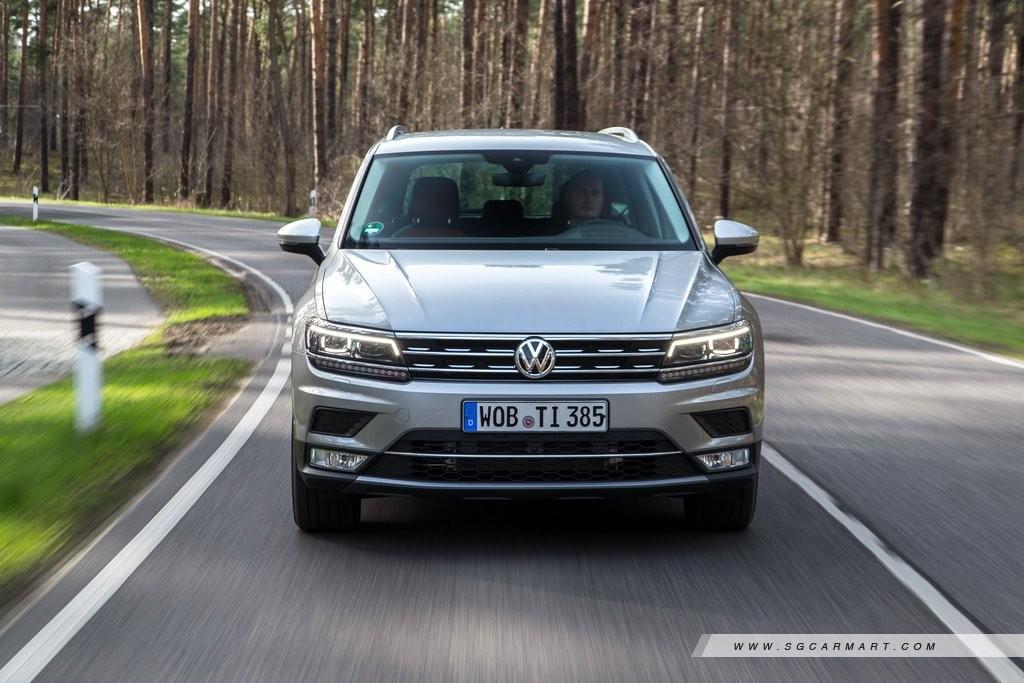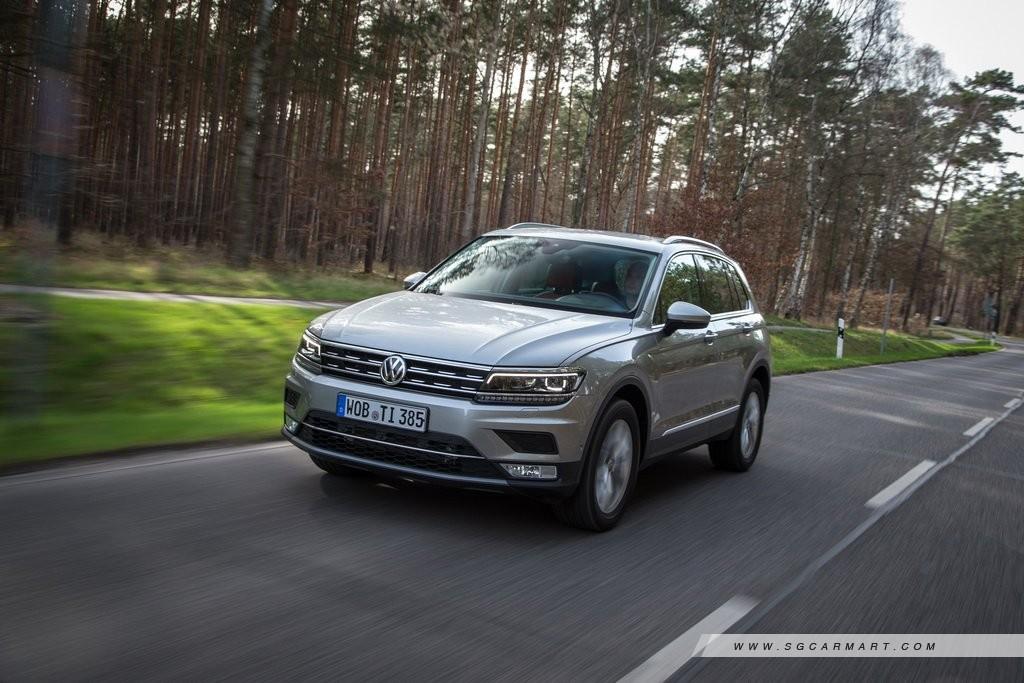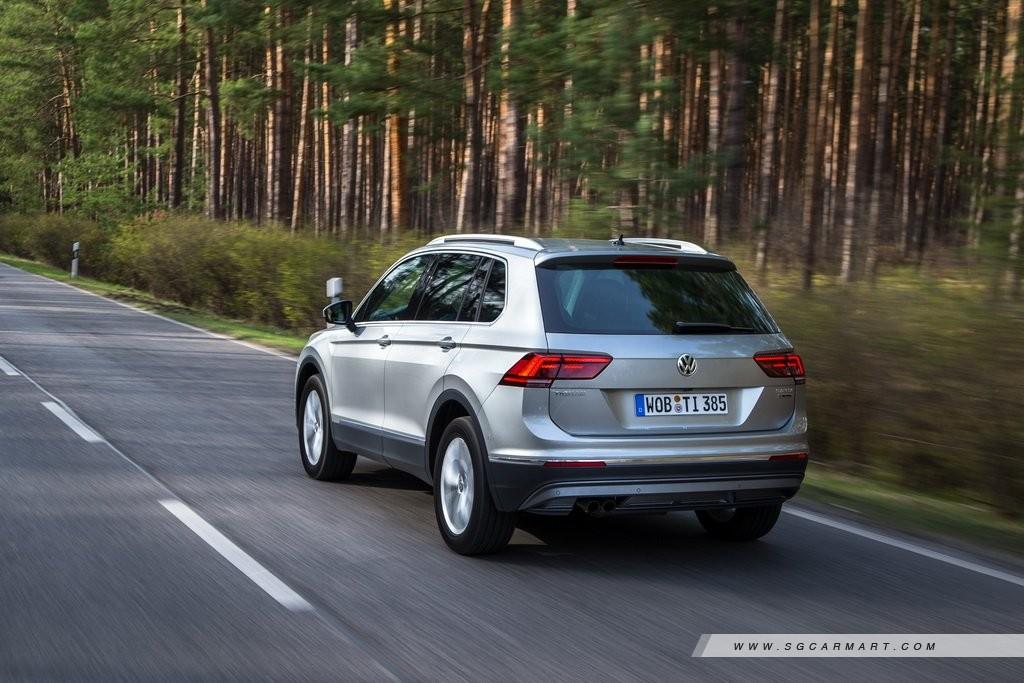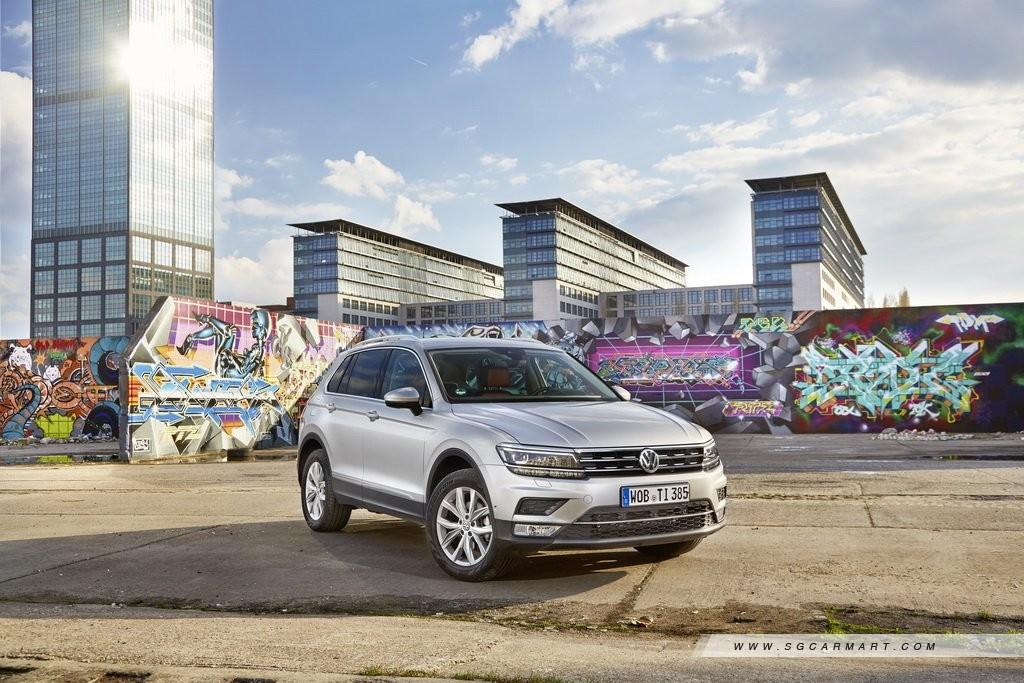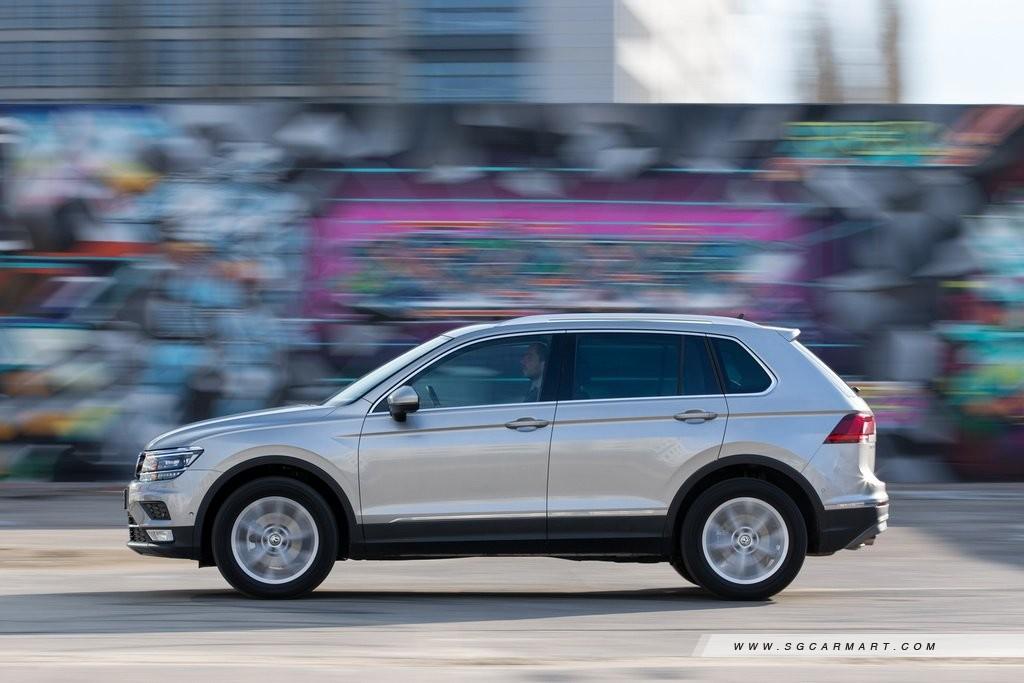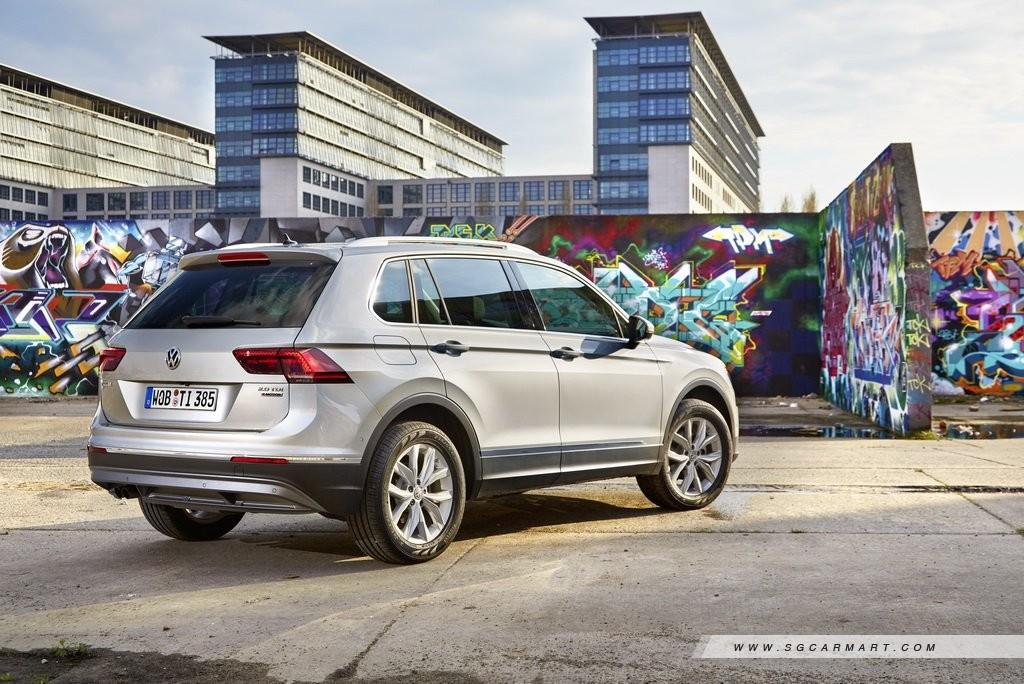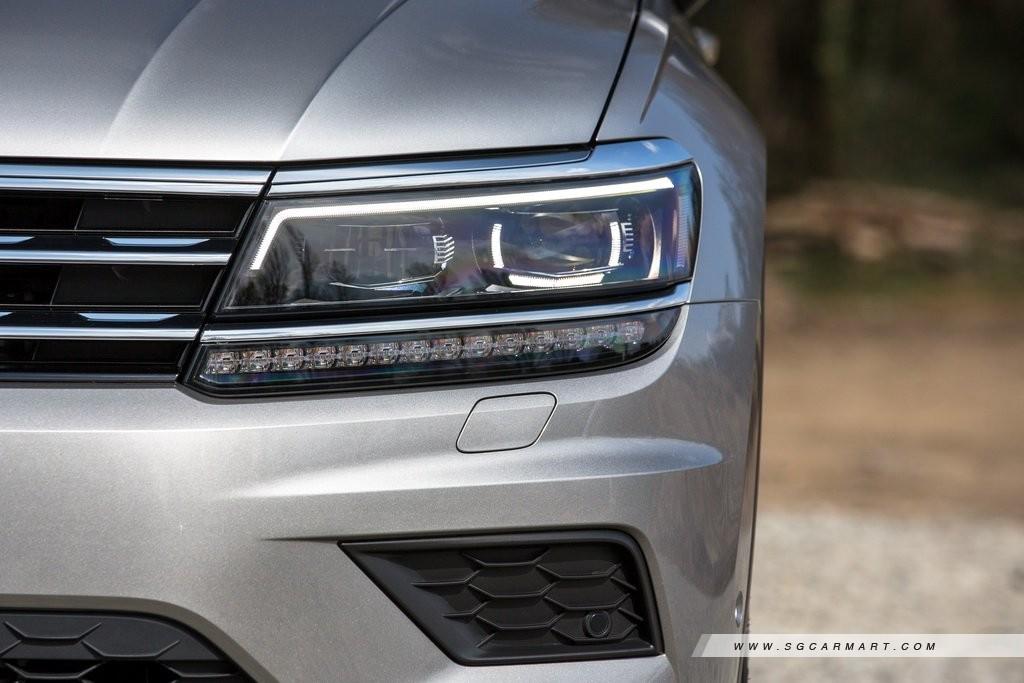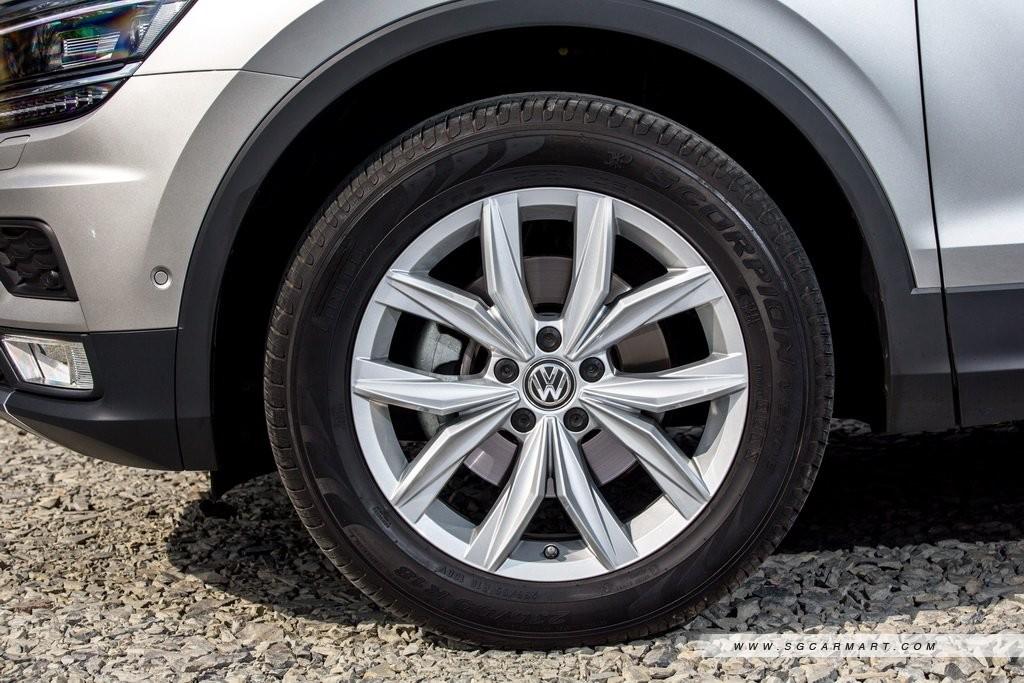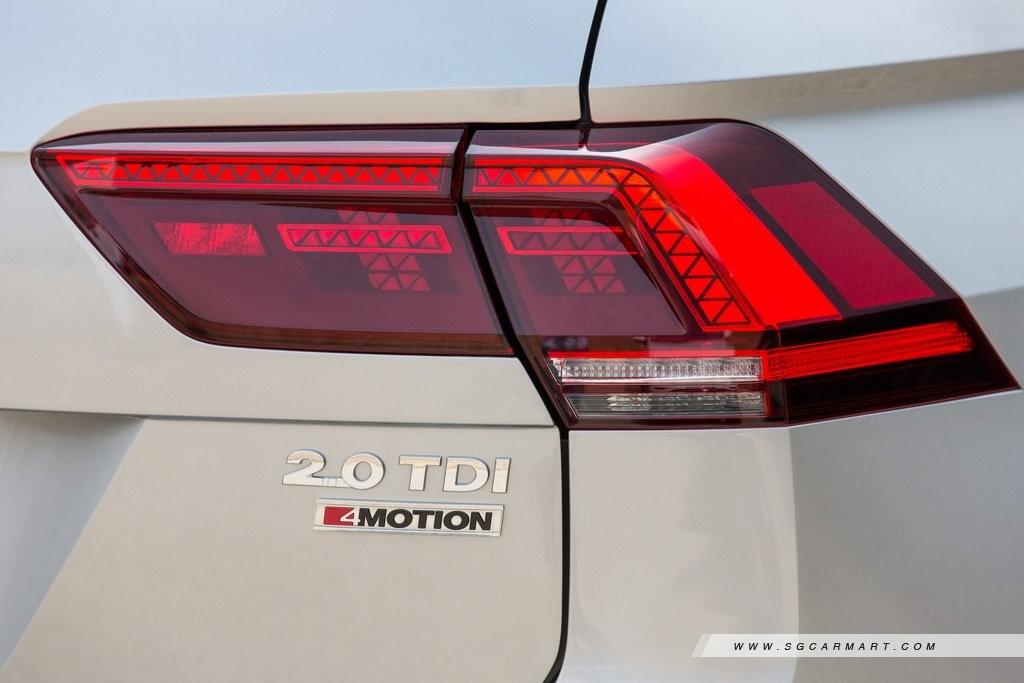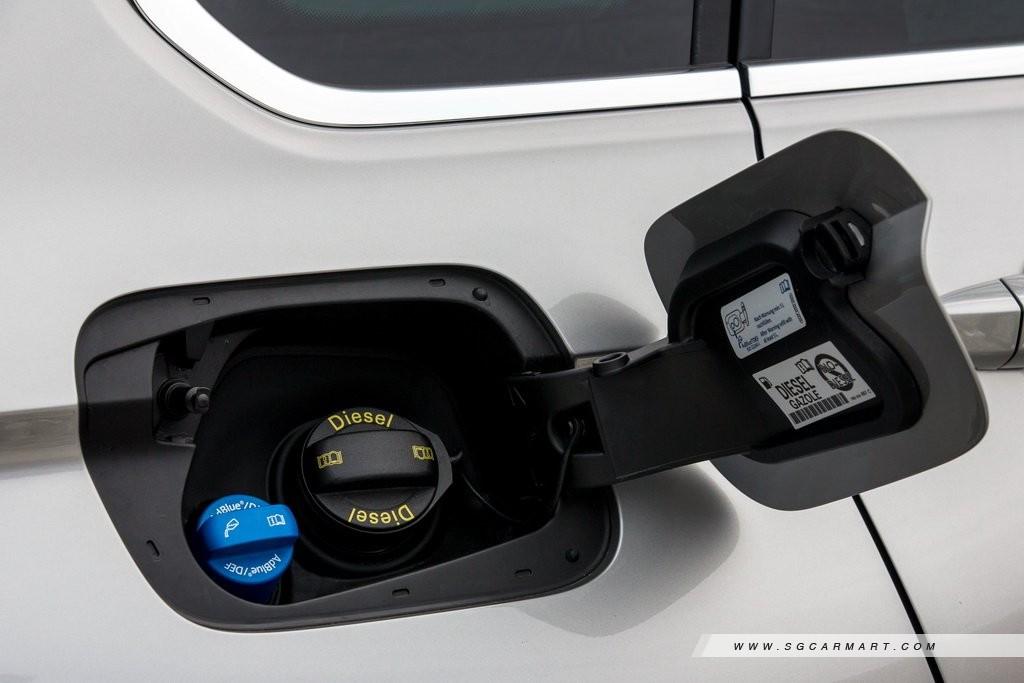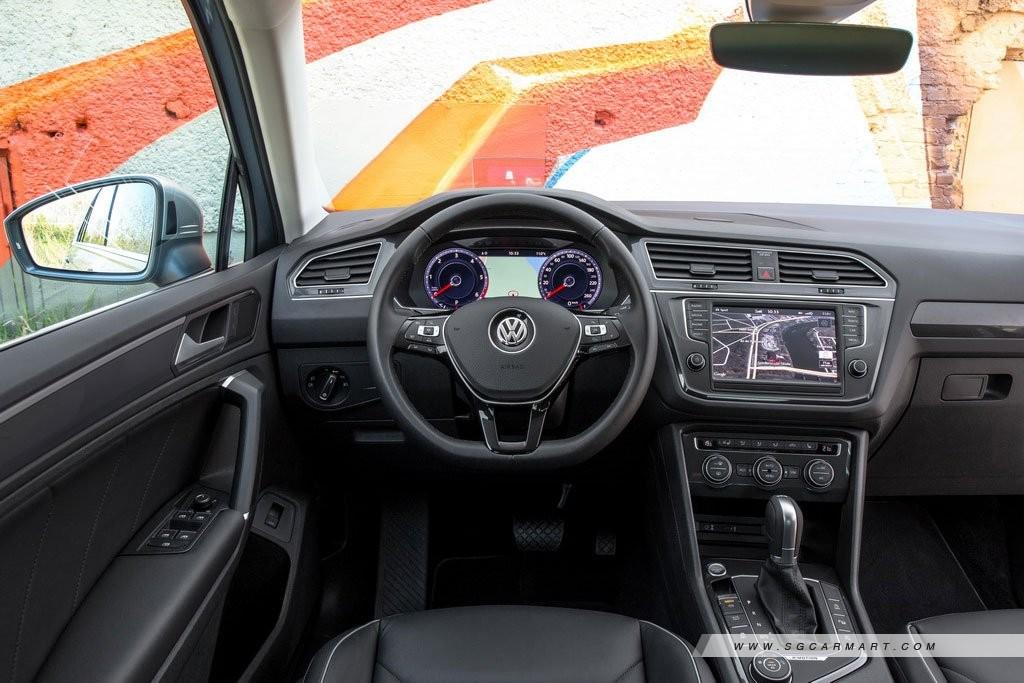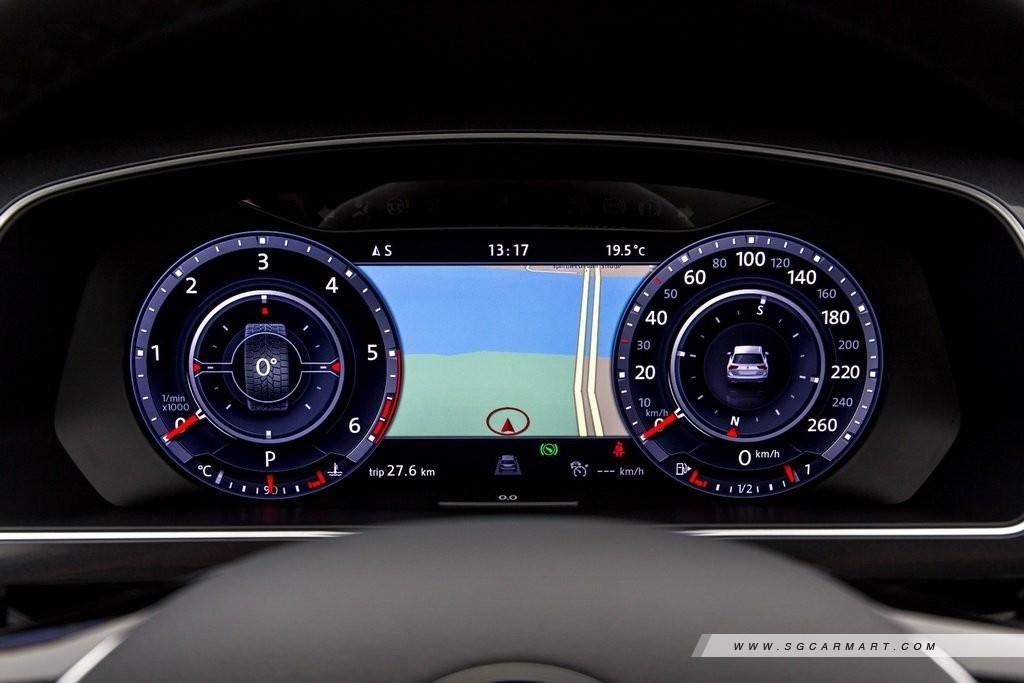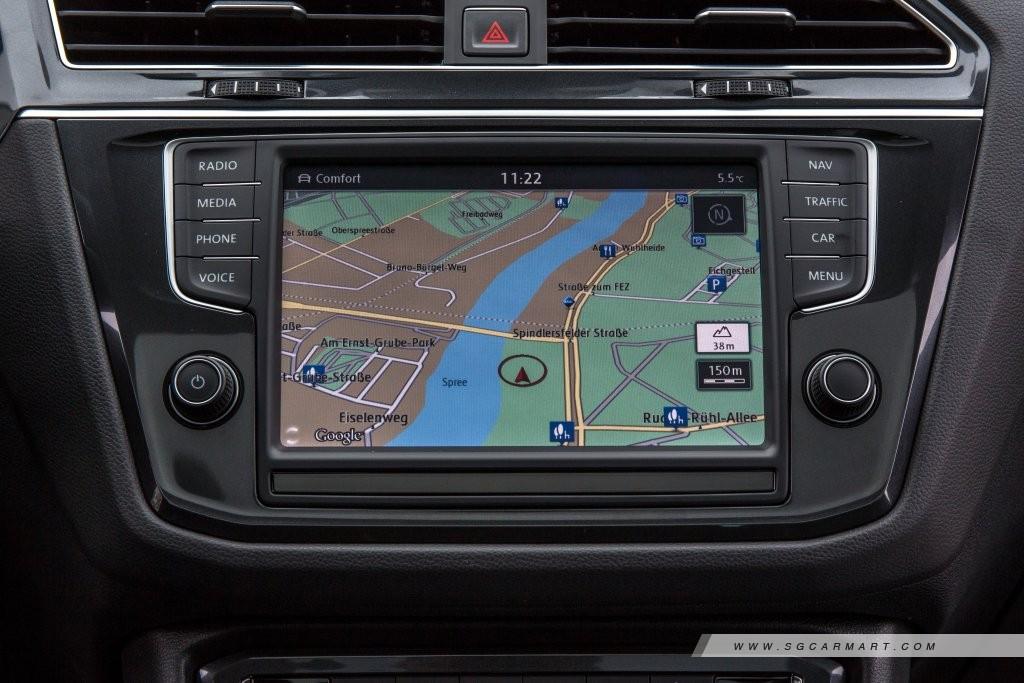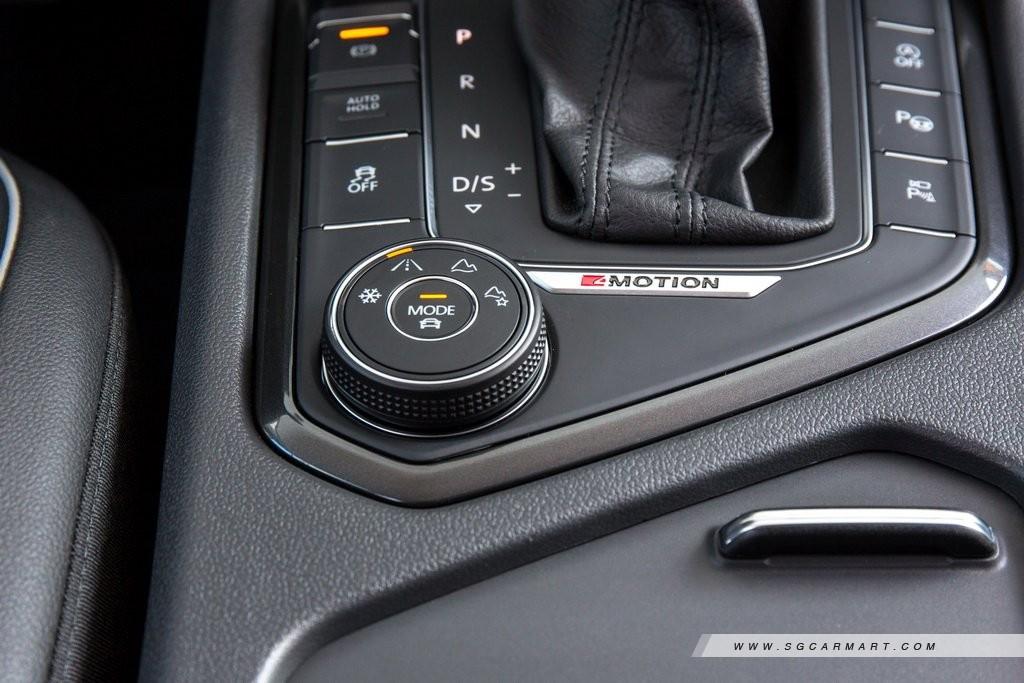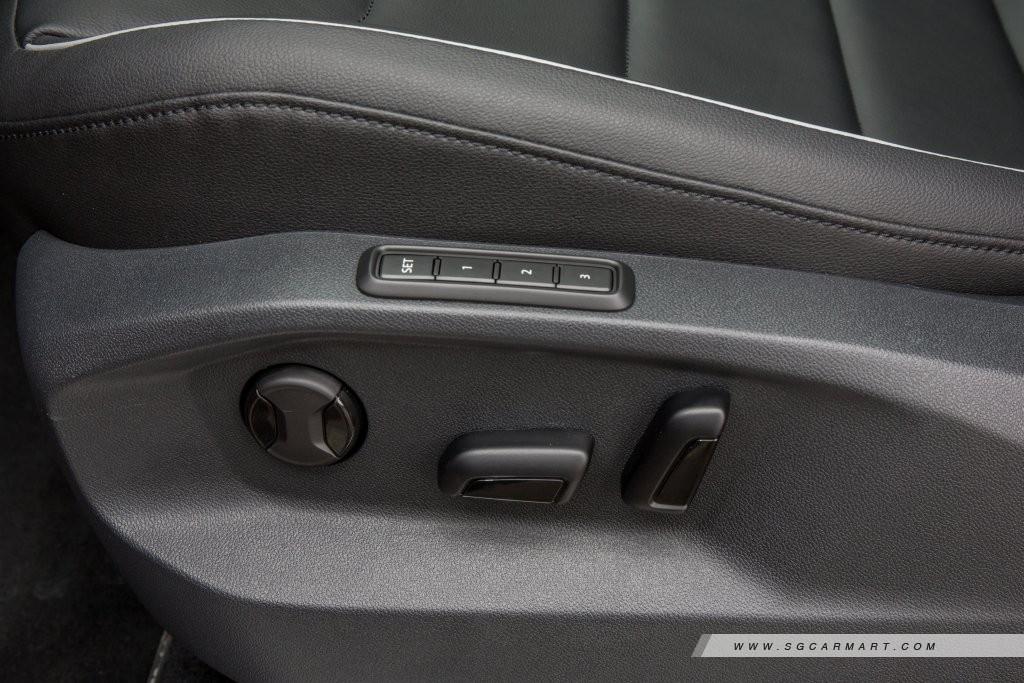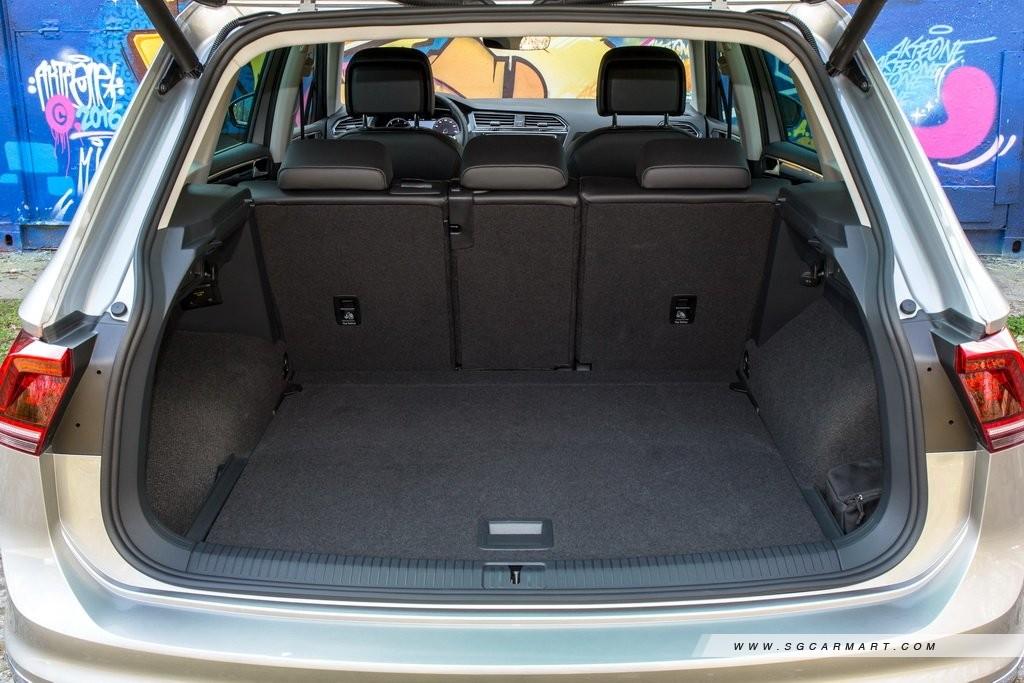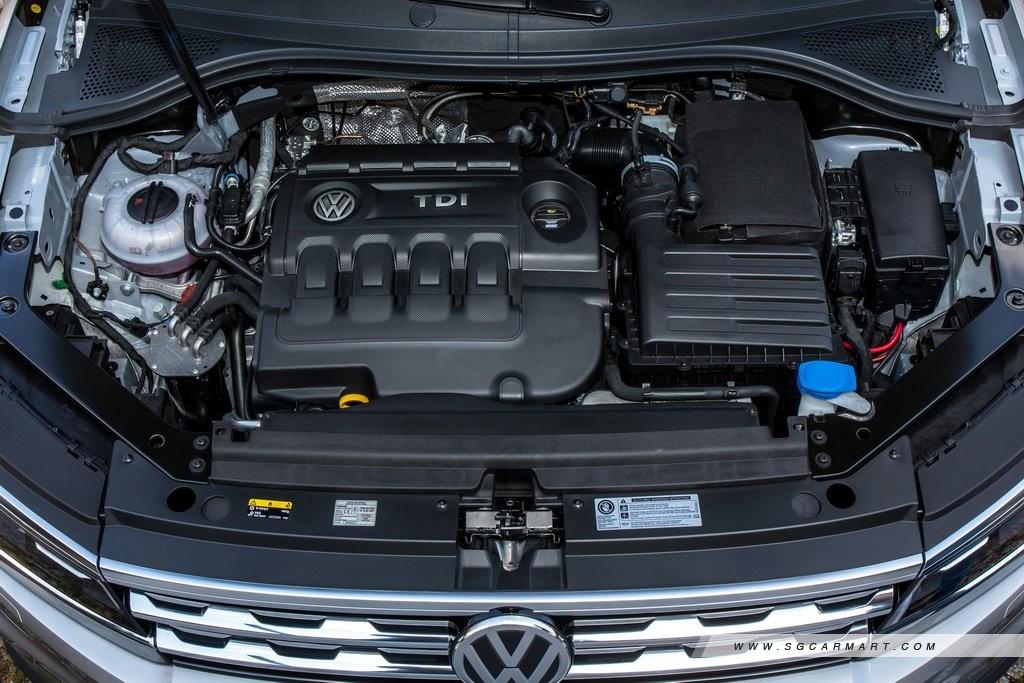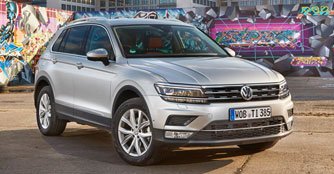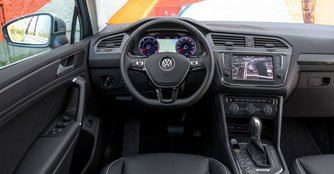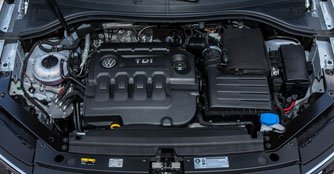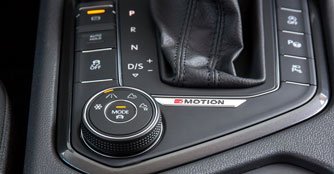Volkswagen Tiguan 2.0 TDI DSG (A) First Drive Review
08 Jun 2016|52,727 views
Alongside the new 2.0 TSI variant of the Volkswagen Tiguan at its launch in Berlin, Germany was the diesel-powered brother, the Tiguan 2.0 TDI. Diesel cars though widely popular in Europe, haven't quite caught on in Singapore.
To locals, the idea of owning a diesel-powered car is hindered by stigmas of noisier clacking engines and for the fact that such powertrains are reserved for cars like taxis, despite the obvious fuel economy advantage.
But today, automotive tech has improved and manufacturers are on the constant scramble for refinement, meaning that diesel powertrains aren't the rambunctious and uncouth plants of yesteryear. The Tiguan 2.0 TDI is exemplary of this and just like its TSI brother, is more handsome and capable than before.
Up close and Personal
Apart from a TDI badge on the car's trunk, denoting its diesel ticker, the 2.0 TDI unit we drove in Berlin looks completely similar to the 2.0 TSI, which is great.
Compared to the old Tiguan, this one's sharper, much sharper. The use of the group's Modularer Querbaukasten (MQB) platform has enabled more striking proportions and a dynamic design on the Tiguan, giving it a powerful stance and sharp, eye-catching character lines.
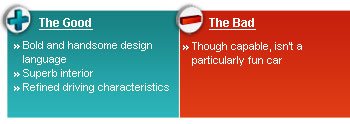 |
The use of MQB also benefits the Tiguan on the inside, because despite being lower than before, there's in fact more headroom and plenty of legroom for a trio of adults across the rear bench, too.
Just as in the 2.0 TSI, the 2.0 TDI's cabin is sumptuously furnished and aligned towards the driver for improved driving comfort. At the same time, the car's 12.3-inch Active Info Display, and user-friendly Composition Media interface complement the experience inside.
Use of soft-touch plastics and leather throughout the cabin also means that everyone on board gets to enjoy the Tiguan's premium fit and finish.
Behind, the 615 litre boot dwarfs those of rivals like the Mazda CX-5's 403 litres.
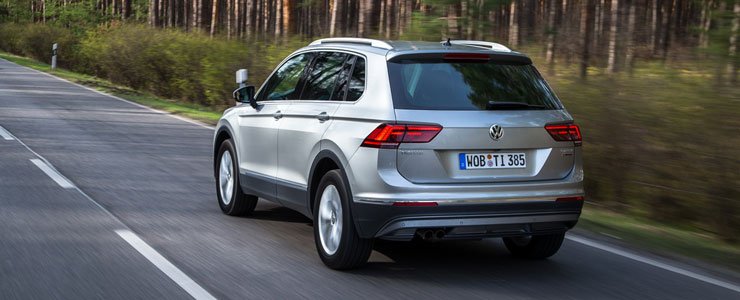 |
The Drive
Perhaps, the most remarkable aspect of the diesel-powered Tiguan is the refined and punchy 2.0-litre TDI engine that lurks under the hood of the variant we drove.
The turbocharged diesel unit may only produce a humble 187 Wolfsburgian ponies but a formidable 400Nm of torque. Power is distributed to the four wheels by means of a creamy seven-speed DSG - a potent powertrain combination.
It's lumps like the Tiguan's that reinvent the drive of diesel engines because you barely hear any clanking but profit from the heaps of low-end power for punching through the city.
And as do most modern German cars, the Tiguan's taut dynamics ensure that the car stays planted on winding roads and high-speed tarmac, while the steering strikes a comfortable balance between load and taction.
Its point-and-squirt capablities make it easy and fun enough to drive but don't expect to have too much fun. For that, there's the Golf.
Off-road, the Tiguan's 4MOTION Active Control, operated easily via a switch, enables safe hikes even under the toughest conditions and other clever systems such as Electronic Stability Control (ESC) prevent you from crashing.
Conclusion
Owning the Tiguan 2.0 TDI DSG sounds like a practical idea for families in the market for a German compact Sports Utility Vehicle. For those that shun diesel-powered cars, they ought to give this a shot.
It's a handsome, spacious car with competitive equipment levels and if the price is right, the Tiguan stands a huge chance at being the best car is this segment. Unfortunately, we're going to have to wait awhile to find out as Volkswagen Singapore hasn't confirmed when this one reaches our shores.
Alongside the new 2.0 TSI variant of the Volkswagen Tiguan at its launch in Berlin, Germany was the diesel-powered brother, the Tiguan 2.0 TDI. Diesel cars though widely popular in Europe, haven't quite caught on in Singapore.
To locals, the idea of owning a diesel-powered car is hindered by stigmas of noisier clacking engines and for the fact that such powertrains are reserved for cars like taxis, despite the obvious fuel economy advantage.
But today, automotive tech has improved and manufacturers are on the constant scramble for refinement, meaning that diesel powertrains aren't the rambunctious and uncouth plants of yesteryear. The Tiguan 2.0 TDI is exemplary of this and just like its TSI brother, is more handsome and capable than before.
Up close and Personal
Apart from a TDI badge on the car's trunk, denoting its diesel ticker, the 2.0 TDI unit we drove in Berlin looks completely similar to the 2.0 TSI, which is great.
Compared to the old Tiguan, this one's sharper, much sharper. The use of the group's Modularer Querbaukasten (MQB) platform has enabled more striking proportions and a dynamic design on the Tiguan, giving it a powerful stance and sharp, eye-catching character lines.
The use of MQB also benefits the Tiguan on the inside, because despite being lower than before, there's in fact more headroom and plenty of legroom for a trio of adults across the rear bench, too.
Just as in the 2.0 TSI, the 2.0 TDI's cabin is sumptuously furnished and aligned towards the driver for improved driving comfort. At the same time, the car's 12.3-inch Active Info Display, and user-friendly Composition Media interface complement the experience inside.
Use of soft-touch plastics and leather throughout the cabin also means that everyone on board gets to enjoy the Tiguan's premium fit and finish.
Behind, the 615 litre boot dwarfs those of rivals like the Mazda CX-5's 403 litres.
The Drive
Perhaps, the most remarkable aspect of the diesel-powered Tiguan is the refined and punchy 2.0-litre TDI engine that lurks under the hood of the variant we drove.
The turbocharged diesel unit may only produce a humble 187 Wolfsburgian ponies but a formidable 400Nm of torque. Power is distributed to the four wheels by means of a creamy seven-speed DSG - a potent powertrain combination.
It's lumps like the Tiguan's that reinvent the drive of diesel engines because you barely hear any clanking but profit from the heaps of low-end power for punching through the city.
And as do most modern German cars, the Tiguan's taut dynamics ensure that the car stays planted on winding roads and high-speed tarmac, while the steering strikes a comfortable balance between load and taction.
Perhaps, the most remarkable aspect of the diesel-powered Tiguan is the refined and punchy 2.0-litre TDI engine that lurks under the hood of the variant we drove.
The turbocharged diesel unit may only produce a humble 187 Wolfsburgian ponies but a formidable 400Nm of torque. Power is distributed to the four wheels by means of a creamy seven-speed DSG - a potent powertrain combination.
It's lumps like the Tiguan's that reinvent the drive of diesel engines because you barely hear any clanking but profit from the heaps of low-end power for punching through the city.
And as do most modern German cars, the Tiguan's taut dynamics ensure that the car stays planted on winding roads and high-speed tarmac, while the steering strikes a comfortable balance between load and taction.
Its point-and-squirt capablities make it easy and fun enough to drive but don't expect to have too much fun. For that, there's the Golf.
Off-road, the Tiguan's 4MOTION Active Control, operated easily via a switch, enables safe hikes even under the toughest conditions and other clever systems such as Electronic Stability Control (ESC) prevent you from crashing.
Conclusion
Owning the Tiguan 2.0 TDI DSG sounds like a practical idea for families in the market for a German compact Sports Utility Vehicle. For those that shun diesel-powered cars, they ought to give this a shot.
It's a handsome, spacious car with competitive equipment levels and if the price is right, the Tiguan stands a huge chance at being the best car is this segment. Unfortunately, we're going to have to wait awhile to find out as Volkswagen Singapore hasn't confirmed when this one reaches our shores.
Thank You For Your Subscription.
